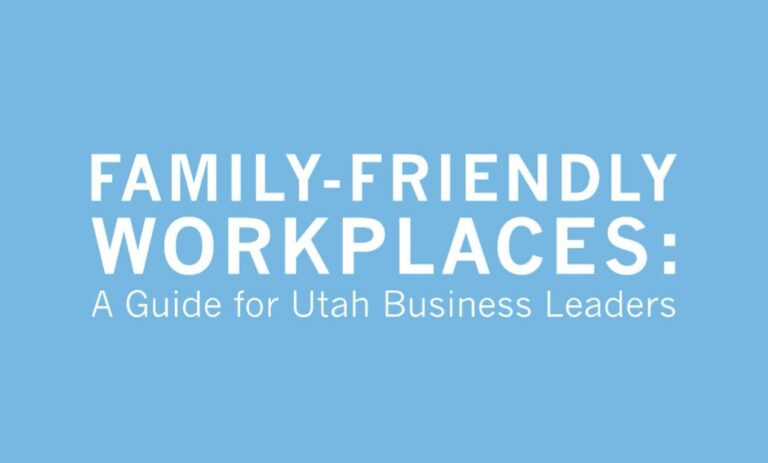In an effort to help the private sector adapt their workplaces to be more family-friendly, the Salt Lake Chamber’s nonprofit foundation, Utah Community Builders, has partnered with Voices for Utah Children and United Way of Salt Lake to create a guide entitled “Family-Friendly Workplaces: A Guide for Utah Business Leaders.” This guide answers many pressing questions the business community may have, including: How does child care affect communities?
The state of Utah boasts a wide variety of city and town sizes, ranging from rural to urban and everything in between. No matter where you live in our beautiful state, though, there’s one thing that makes it home: community. Utah’s communities, and their values of unity, service and support, are central to the lifestyles we enjoy.
A big part of what makes our communities so great is the people. Utahns care about each other, and in times of hardship, we band together to get the work done. During the coronavirus pandemic, for example, our business community figured out how to stay safe while keeping our economy strong. We were creative and forward thinking in our problem solving, and it paid off.
Now, however, our state is facing a new, pressing problem: 77% of Utahns live without access to child care. This statistic makes our state a “child care desert.” Families are not the only ones affected, either. A future with more care center closures, growing child care deserts, and fewer options for families means greater economic costs for communities everywhere.
As a business community, we must once more be creative and forward thinking in our problem solving and do what we can to help. By investing in high-quality day care programs and implementing other child care solutions, we can benefit our communities and society at large. Because high-quality early childhood programs promote healthy development, they can generate savings by counteracting the need for more expensive interventions later in a child’s life.
Studies show that participation in high-quality early care can help children avoid special education, grade repetition, early parenthood and incarceration — all outcomes that imply large costs for our communities and for society. Furthermore, children (over the long term) and parents who participate in such programs are more likely to be employed; thus revenue from their taxes and enhanced buying power can positively contribute to the economy.
We recommend CEOs, presidents, managers and human resource professionals throughout Utah’s business community carefully review the contents of the new Family-Friendly Workplaces toolkit and consider steps they can take in their organizations to support the child care needs and overall well-being and success of their employees.
For more information on how child care impacts communities, read more from the Family Friendly Workplaces guide. With the private sector’s help, we can invest in Utah parents, children and families, making our state an even better place for business.


